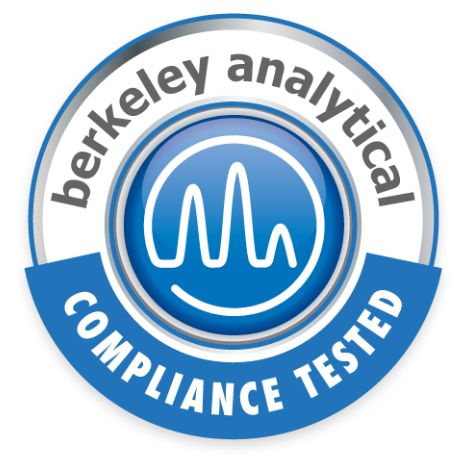Testing of Floor Coverings for LEED IEQ Credit & FloorScore Certification
If you’re a flooring manufacturer making a self-declared claim or seeking third-party certification for a product or need to comply with a purchasing specification, Berkeley Analytical (BkA) can meet your testing needs. We’re knowledgeable regarding all aspects of the product sampling, testing, and conformity assessment requirements for resilient and other hard surface flooring, concrete floor finishes, and textile floor coverings and can expertly guide you through the process.
The flooring industry has a long history of testing its products for VOC emissions. Today, architects, other design professionals, and purchasing agents are increasingly interested in specifying building products that demonstrate outstanding performance for multiple environmental attributes including Indoor Environmental Quality (IEQ). BkA can help you obtain the environmental credits in green building standards and meet mandatory requirements in code-based standards.
After you've received our quote and are ready to send a sample, you'll need to complete our Chain-of-Custody form. There's a video tutorial guide to the form for new customers seeking FloorScore® certification.
Resilient and Other Hard Surface Flooring
The Resilient Floor Covering Institute (RFCI) owns, manages and promotes the FloorScore® brand. This program was developed to test and certify hard surface flooring products for compliance with the VOC emission requirements defined in CDPH Standard Method V1.2. SCS Global Services (SCS) is the certification body for the program. Berkeley Analytical (BkA) was part of the team that launched FloorScore certification and is an approved testing laboratory for the program. All types of non-textile flooring products are eligible including: vinyl tile and sheet, linoleum, polymeric, laminate, bamboo, hardwood, rubber, tile, wall base, stair treads, and associated adhesives. Companies need not be RFCI members to participate.
FloorScore certification is either specifically recognized by many environmental programs or is a pathway for obtaining Low-Emitting Material credits in these programs because it is based on testing according to CDPH Standard Method v1.2. Under the LEED v4/4.1 EQ Credit: Low-Emitting Materials, all layers of a flooring system must be compliant with the CDPH Standard Method in order for a building project to earn credit. For resilient and other hard surface flooring, this means that underlayment products and adhesives also must be tested for VOC emissions. Other voluntary programs where Floorscore certification is applicable include: The WELL Building Standard, v2.0; CHPS, National Core Criteria v3.0; Green Globes Assessment Protocol, ANSI/GBI 01-2019; International Living Future Institute, Living Building Challenge 4.0; and NAHB National Green Building Standard, ICC 700-2020.
FloorScore certification also is applicable to State, Federal and National Green Building code-based standards. California Green Building Standards Code (CALGreen) Title 24, Part 11 was the first state-wide green building code and is applicable to most new residential and non-residential construction projects in California. This code requires that all resilient flooring systems in both residential and non-residential buildings be either FloorScore certified or meet the requirement of the CDPH Standard Method. ANSI/ASHRAE/USGBC/IES Standard 189.1 and the International Green Construction Code, IgCC 1018, contain prescriptive provisions for VOC emissions from hard-surface flooring that may be implemented by government agencies adopting these standards.
NSF/ANSI 332 Sustainability Assessment for Resilient Floor Coverings is the leading standard that is used to evaluate and certify the sustainability of resilient flooring products across their entire life cycle including the use phase. This standard contains a prerequisite for minimizing indoor VOCs as determined by the CDPH Standard Method. Several organizations including SCS Global Services, UL Environment, and NSF certify products to this standard.
Concrete Floor Finishes
Concrete floor finishes are a rapidly growing segment of the flooring industry. These products contribute to LEED credits because LEED v4 requires compliance for all types of flooring products including concrete finishes. The products must be tested and shown to be compliant to CDPH Standard Method V1.2. In most cases, the concrete itself is defined as an inherently non-emitting source and is exempt from testing.
Textile Floor Coverings
The Carpet & Rug Institute (CRI) has certified many of their members’ carpet and carpet cushion products to the CRI Green Label and the CRI Green Label Plus (GLP) programs. The GLP VOC emissions acceptance criteria are stated as maximum allowed emission factors. These values are largely based on the private office concentration criteria in CDPH Standard Method V1.2 with the addition of criteria for a few carpet and carpet cushion category specific VOCs. Although the GLP program is in widespread use, it is not mandatory as many green building rating systems allow the alternate pathway of demonstrating compliance of carpets and cushions to CDPH Standard Method V1.2.
Carpet manufacturers also can take advantage of NSF/ANSI 140 Sustainability Assessment for Carpet to document their leadership in environmental improvement, public health, and product performance. BkA provides testing services for the SCS Global Services Sustainable Carpet Certification program that is based on NSF/ANSI 140.


